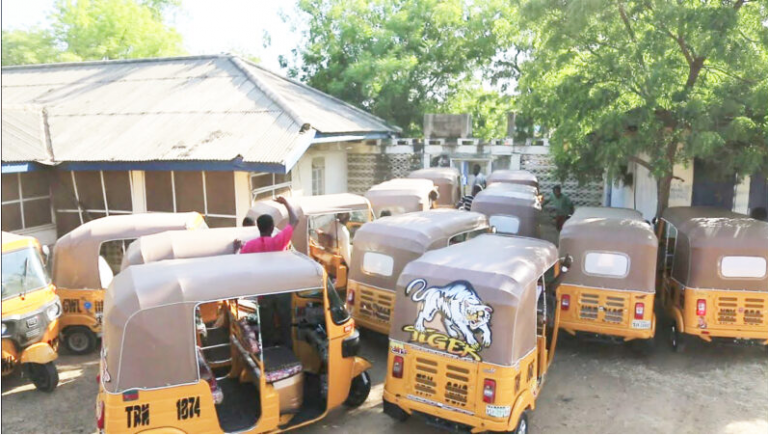
Earlier this week, residents of Abuja, the capital city of Nigeria woke up to the news that keke (popularly known as tricycles) will not be plying some routes it had earlier plied.
This came as a surprise as workers and commuters who depend on the services of tricycles to get to their various places of work and destinations were disappointed.
School students were not left out.
Tekedia Mini-MBA edition 14 (June 3 – Sept 2, 2024) begins registrations; get massive discounts with early registration here.
Tekedia AI in Business Masterclass opens registrations here.
Join Tekedia Capital Syndicate and invest in Africa’s finest startups here.
The authorities claim that operators of tricycles in Abuja have violated the law by transporting commuters to areas where they lacked jurisdiction. They work in city centers instead of the villages and within estates.
So it is safe to say that they have been restricted; not totally banned. They’ve been protests and agitations against the new move by keke operators and commuters.
There are about three sides to the keke matter.
- The FCT Authorities
- The Keke operators/Drivers and their Associations
- The passengers (citizens)
On the part of the authorities, they believe that the activities of keke breaches the law. They maintain that keke operators have stepped beyond their boundaries and territories as they now work in city centers instead of the interior routes and villages originally mapped out for them.
The Belief is that keke is largely used to perpetrate crimes and they are responsible for a number of accidents on our roads as some of its drivers are either uneducated or lack basic driving education. So to ensure a peaceful city, the restriction on keke is necessary.
Apparently, the reality of the ban/restriction have prompted certain thoughts on the minds of Nigerians living in Abuja.
If you ask me, I will say that the restriction on keke is harsh considering the period we are in. A lot of these young men are struggling to make ends meet. The economy is also not smiling. The manner of implementation does not go well with the citizens, those who are at the grassroots and largely affected directly or indirectly by the ban on keke.
First, thousands of young able bodied men will become Jobless overnight. It is not news that a lot of families depend on the keke business. It has now become a source of livelihood for them. The ripple effect is that these men may take to crime and other vices and this ultimately threatens the security of Abuja. This is simply because the market has been deflated. They cannot make as much money as they used to. The FCT Authorities should have designed a system to support and upgrade the keke operators to taxi drivers via a balance and carry scheme or something.
Stranded passengers are not left out. They now trek long distances to get taxis plying their routes. And the sad part of this development is that operators of taxis have increased their prices since the ban, such that distances normally covered by keke for 50 naira now cost 100 naira for same distance with taxi. Other distances normally charged 100 naira by keke operators now goes for 200 naira with taxis. The taxi operators have literally become insensitive to the plight of daily commuters and I think the authorities should wade in on this to cushion the effect of the ban of keke from city centers on commuters.
I think that the authorities would have done better by announcing to keke operators and indeed the general public a reasonable deadline of say January 1st, 2020 to restrict the activities of keke from city centers. This way, all parties involved will be able to plan effectively for the new policy. Some keke operators may decide to relocate to other states were they can operate at best. Others will take time to simply migrate to another business. Some will still continue on the business. The deadline would have exonerated the authorities and put the keke operators on the spotlight when they fail to comply by Jan 1st, 2020.
As regards the provision of palliative transportation system, Abuja residents have not really seen the positive effect of the shuttle buses as most of them come out around 10am in the morning after commuters have gone to work. I mean we need these buses as from 6am-7.30 am in the morning on work days.
It is vital to note that keke has not been banned totally from Abuja. They’ve only been restricted to the villages and the estates and are not required to operate within the city centers. I have faulted the mode of implementation and I believe that we can do better as a people.
Chukwuka Nwbuogor writes from Abuja. Nigeria.



